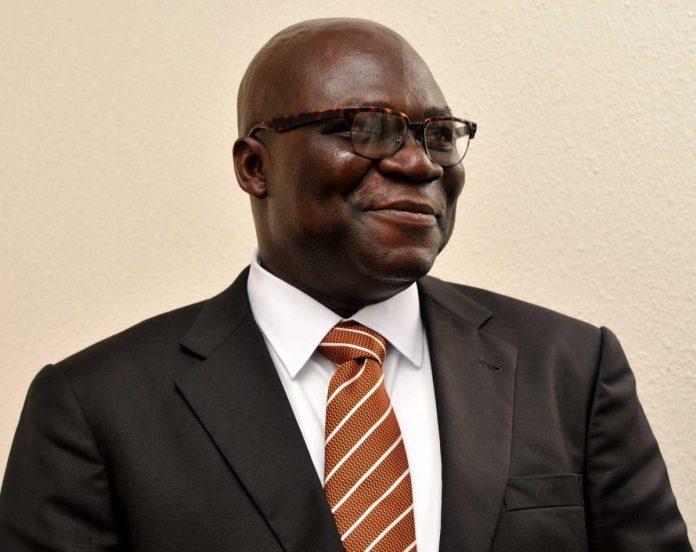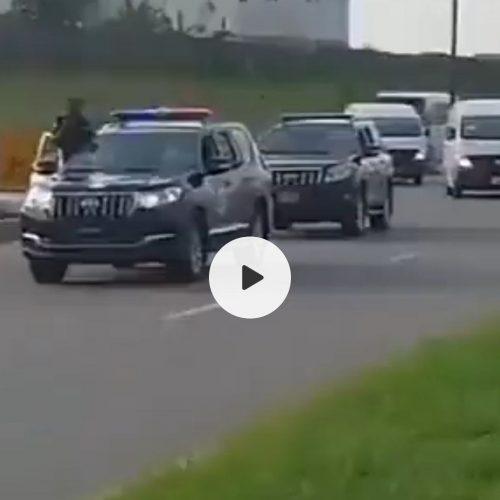abati1990@gmail.com
One of the most concerning subjects in Nigeria today is the renewed call for the liberalization of access to the ownership of guns, in the face of the worsening state of insecurity in the country. This is not the. first time such a call would be made. With insecurity ravaging Nigeria in the last two decades in the form of banditry, terrorism, kidnapping, sectarian violence, ethnic strife and religious conflicts resulting in an orgy of killings, and destruction of property, the displacement of persons, and a persistently apparent inability of the Nigerian state to serve its true purpose which is to ensure “the security and welfare of the people”, the despair, angst and bitterness among the people has led not a few to demand that the best option for Nigerians is to allow every citizen to own a gun and defend themselves. The thinking is that the best way to address terror is to counter it with terror in similar or equal proportion.
As recently as 2018, for example, a member of the Nigerian Senate, Senator Kabir Marafa (Zamfara Central) while contributing to a debate on insecurity in the country, told his colleagues matter of factly that “… people cannot be slaughtered in their houses helplessly. Maybe what we need to do is to liberalise gun control. Let everybody own a gun so that when you are coming to my house, you will know that I have my own gun while you are coming with yours”. Marafa’s home state of Zamfara is one of the killing fields in the North West of Nigeria. Six years later, the situation has only worsened. By 2021, the Nigeria Security Tracker created by the US Council on Foreign Relations (CFR) had counted up to 2,700 deaths in less than 10 years due to insecurity in Nigeria – and even that was a modest estimate because for the most part many acts of violence are unreported or under-reported. Senator Marafa is not alone. He spoke the mind of many others. Nigeria is a country truly where many people are “slaughtered helplessly”. By 2021, Darius Ishaku, then Governor of Taraba state (2015-2023), and Bashir Magashi, Minister of Defence as he then was (2019 – 2023), had also suggested that the people should be courageous to carry arms in self-defence.
In 2022, Zamfara state even went a step further when it announced that the governor, Bello Matawalle, had directed the state police commissioner to issue gun licences in each of the 19 emirates in the state to those wishing to defend themselves. “Government is ready to facilitate people, especially our farmers to secure basic weapons for defending themselves”, the state commissioner of information reportedly said. State Commissioners of Police do not ordinarily take instructions from state Governors but at least that Governor had to be seen to be saying something. Similarly, in Katsina state, then Governor Aminu Masari (2015 – 2023), frustrated with the spate of killings in his state, once told the people of the North West state to “buy guns and defend themselves.” He reportedly added that “it is Islamically allowed for one to defend himself against attack. One must rise to defend himself, his family and assets. If you die while trying to defend yourself, you’d be considered a martyr. It is surprising how a bandit would own a gun while a good man trying to defend himself and his family doesn’t have one”. Masari had the support of a group called Katsina State Innovative Thinkers Initiative. He was opposed by the Katsina State Chapter of the Coalition of Northern Groups. Other state Governors who at one point or the other called for the right to bear arms include the late Governor of Ondo State, Rotimi Akeredolu, SAN (with regard to Amotekun), and former Zamfara Governor, Bello Matawalle. In May 2023, Hon. Alhassan Ado-Doguwa (Doguwa /Tundun Wada Federal Constituency) made a similar call. Thus, the conversation about the need to liberalize the ownership of guns in Nigeria has been recurrent, and has even become strident as each successive administration fails to improve the people’s conditions. But would the open ownership of guns by Nigerians solve any problem? I don’t think so.
With the mindless killings in three local governments in Plateau state, and in Taraba and Zamfara between Christmas Eve and the end of the year 2023, that question has reared its head again. Over 200 persons were killed, more than 300 injured, about 10, 000 were rendered homeless, in a carnage that went on for more than two days despite over 30 distress calls to the security agencies! More persons are now calling for arms in every possible hand that can pull a trigger, urging the people to resort to self-help and these include Senator Ned Nwoko who has called for the introduction of a bill that allows civilians to own and carry firearms, Mike Ejiofor, a security expert, who says a culture of resistance in the face of mindless attacks should be encouraged, and a group of Kaduna youths who have asked President Tinubu to allow them to carry arms to defend themselves and their communities. The National President of the Middle Belt Forum, Dr. Bitrus Pogu has also recently expressed the view that “Nigerians should be allowed to carry at least some arms to defend themselves and to restrain them from doing so would amount to “a conspiracy against the people”. However, the Chief of Army Staff, General Taoreed Lagbaja objects to all these calls, saying it is a call for anarchy.
What the Army Chief failed to note is that what the people are actually reacting to is the failure of the institutions that he represents, the Nigerian security establishment and the utter failure of the Nigerian state. The state in Nigeria has failed the people so badly that lives have become cheap and worthless, our common humanity has been eroded. In virtually every part of the country, people do not feel safe, farmers in the Middle Belt, the North West and the North Central cannot go to their farms. It is risky to travel by road or trains as the routes have been taken over by bandits and kidnappers. Worse still, the same security agencies that are maintained at tax-payers expense to protect the people are for the most part agents of violence inflicting pain on the people, as has been seen in sundry cases of police brutality, abuse of uniform, accidental killings, and the professional omissions of the men in uniform. Having lost faith in the capacity of the state to protect them, if not in the state itself, many Nigerians are compelled to resort to self-help. It has been argued that in fact certain forms of violence such as terrorism, ethnic conflict and sectarian violence are actually acts of rebellion against Nigeria itself – its organization and dis-organization, beyond the felt criminal implications. This is why the long-term solution must begin with making the Nigerian state functional for the citizens’ benefit. Putting a gun in every hand may not be the solution. In a country where there is so much ingrained bitterness, and religious/ethnic divisions, as well as frustrations about the common patrimony and matters of justice, fairness and equity, the liberalization of gun use would be an invitation indeed to chaos and nihilism.
Ownership of guns in Nigeria today is controlled by the Firearms Control Act (2004), the principal provisions of which state that (1) no person shall have in his possession or under his control, any firearm or ammunition except such persons is licensed by the President or the Inspector General of Police (2) no such license should be granted to persons under the age of 17, persons who are of unsound mind, persons with eyesight problems, and persons that have anger control issues, and only the Inspector General of Police can grant a license to make and repair arms; (3) personal firearms including shotguns and automatic/semi-automatic guns are prohibited; (4) anyone who violates the law is liable to a minimum sentence of 10 years imprisonment. Those who ask for the right to own guns are quick to draw attention to Section 14 (2) (b) of the 1999 Constitution and how the government seems to have failed the people; Section 33(1) which protects the citizen’s right to life, and Section 33 (2)(a) which gives a private citizen the right to use reasonable force to defend himself/herself as well as property from unlawful violence. The pro-gun lobby go a step further to point to the limiting effects of the aforementioned provisions of the Firearms Control Act. Except this Act is amended, and I do not see why it should be amended, Nigerians including those who want guns are duty bound to obey it.
Whereas Constitutional provisions constitute the basic law, part of the insecurity challenge in Nigeria is the failure to implement and enforce the Firearms Act. There are firearms and ammunition of different brands and capacity in millions of unlicensed hands. The Nigerian government is not sure of the number of guns already in circulation in Nigeria. Our borders are porous, and there are all kinds of local gun manufacturers in hidden places manufacturing and repairing arms without any license. In many parts of the country, live ammunition is sold in underground markets and Nigerian security agencies have no quality intelligence as to how that ecosystem works. The law says persons with unsound mind or poor eyesight should not hold weapons. For the benefit of whoever cares to listen, Nigeria is a theatre of mass psychosis. How else can we explain the phenomenon of trigger-happy security agents, who threaten as they wish to waste people’s lives with the assurance that nothing will happen? In a country where there is cultism even in primary schools, it would be mere wishful thinking to assume that persons younger than 17 do not already have access to guns. The menace of drug abuse has turned Nigeria into a bomb waiting to explode. Hunger angers the people. Mass unemployment has thrown many into depression with maniacal tendencies. Are these the people we want to give the freedom to bear arms and ammunition in the name of self-defence? In a country that in fact believes in witchcraft, the resultant anarchy could eventually lead to civil insurrection. We must not adopt a measure that can consume the nation.

The view has been expressed that Nigeria should be like the United States where the right to bear firearms is constitutionally guaranteed under the Second Amendment. Let such persons be reminded that one of the major threats, in the same United States, is the right to bear arms – a threat to lives, hopes, the economy, politics, a harvest of deaths and violence that has become an American epidemic. Gun-related deaths in the US have risen by more than 50% in the last decade, with an average of about 100 deaths being reported daily on average. Mass shootings are common, in 2022 alone about 46 school shootings were reported. In Richmond, Virginia, in the last three years, almost 30 students have died in gun-related violence.
Even the National Rifle Association (NRA), the umbrella body for gun-lobbyists and self-styled defenders of the Second Amendment, has been exposed as a group of hypocrites. Their long-term CEO/Vice President, Wayne LaPierre has just announced his resignation with effect from January 31, under very controversial circumstances bordering on corruption. It is a mortal sin to engorge at the expense of other people’s lives. It is specious to argue that “the only way to stop a bad guy with a gun is with a good guy with a gun.” Nigerians are good copycats, but we must be careful what we copy from other societies in the throes of their own peculiar kind of mass psychosis. Nigeria must not borrow other people’s madness as a solution to its internal problems.
The thing to do is to re-tool and refurbish our security agencies. The Nigeria Police is too weak as it is to enforce any laws in any meaningful and sustainable manner. The Police are primarily responsible for the protection of lives and property. They seem to have submitted that responsibility to the military even under a civilian dispensation. It is scandalous that they are often absent during moments of major security breaches. Many of the affected communities prefer to direct distress calls to the military, pretending not to know that Nigeria has a Police Force. The National Council of State should meet more often to encourage inter-agency collaboration, complementarity and the sharing of intelligence. It is argued that everyone should carry arms and ammunition because cattle herders do so for both personal security and economic reasons – the cattle herder may need to protect himself, but only as long as his firearm is licensed. Cattle rearing is still an issue because of climate change and desertification in the North, but this is a security problem that can be stopped through an effective cattle ranching system.
In Kwara State at a time, the Shonga Farms, led by white Zimbabwe farmers managed cattle ranches that fed people and serviced hotels and dairy farms, before that, some states in parts of the country had ranches – the Obudu Cattle Ranch in Cross River state for example. In 2024, Nigerians should not be fighting over animal grazing. Ethiopia has millions of cattle: how to feed the stock is not an issue. Cattle rearing does not have to be ethnically determined. Nothing stops state governments in parts of Nigeria from engaging in livestock farming to reduce the North-South seasonal migrations. The Joint Task Force in the North East also bears arms: but are they licensed to do so as part of a formal response to the crisis in that area? That is the question. And let those who ask for guns for all note that the Firearms Act actually favours only the rich. A firearm does not come cheap. The poor cannot afford to build an artillery. The rich are busy doing so, and the more arms and ammunition that they buy and give to their political thugs and other agents, the more they endanger this country. When the rule of law and political will begin to prevail and good men control the system, Nigeria will begin to turn the corner with its security challenges.

















